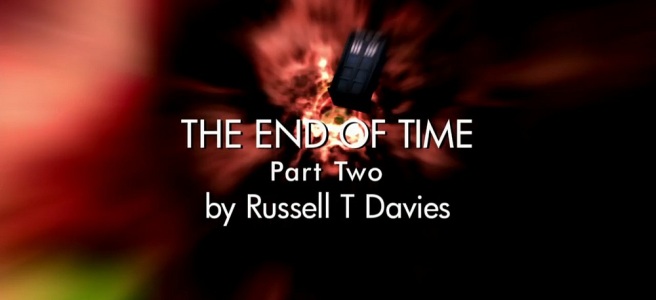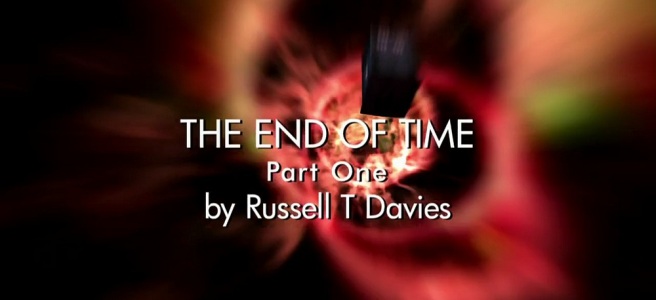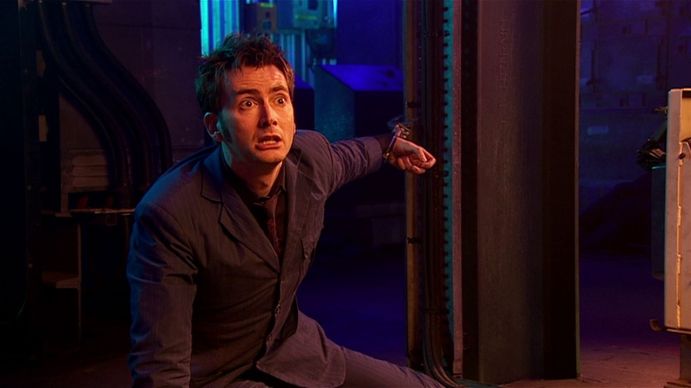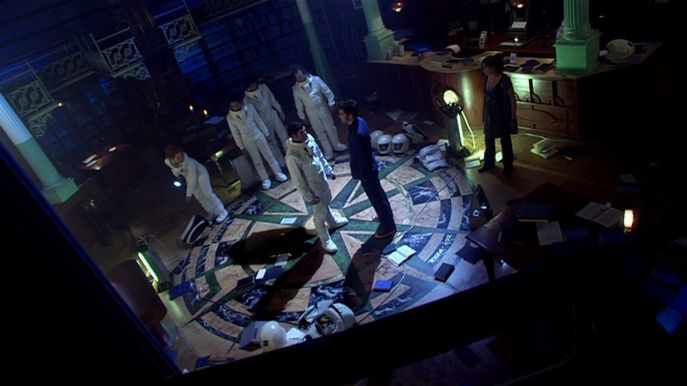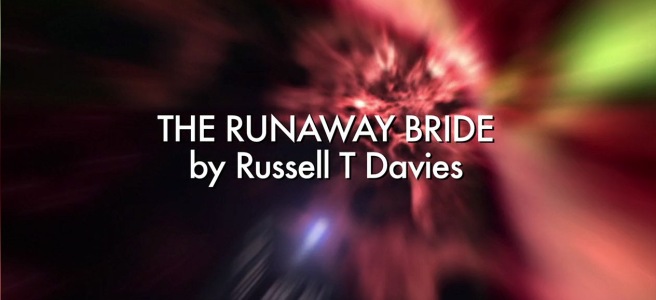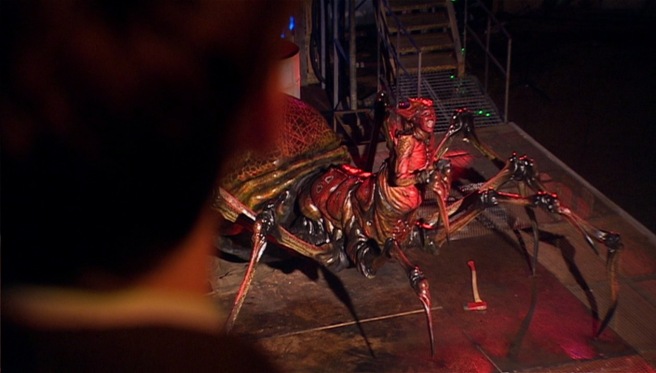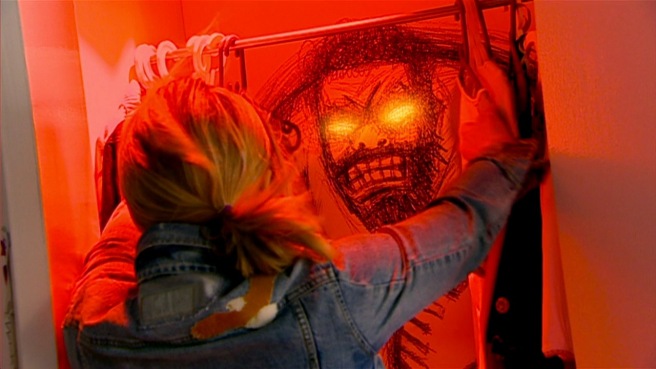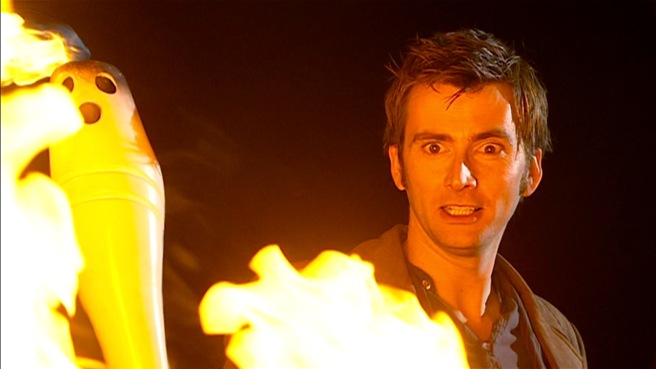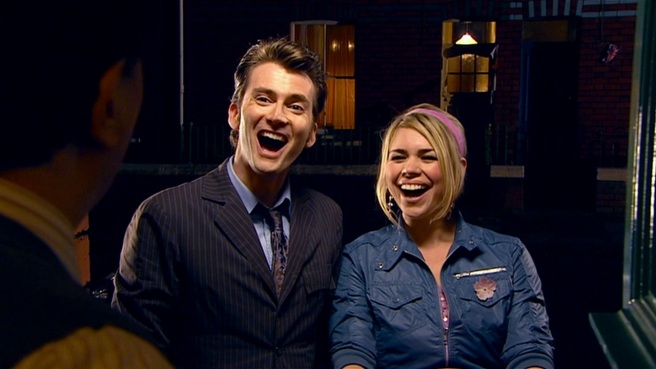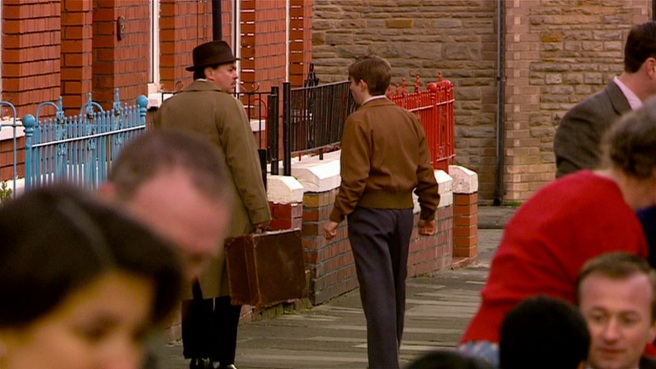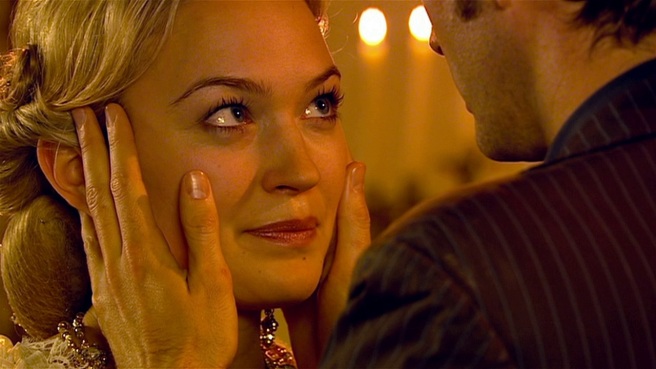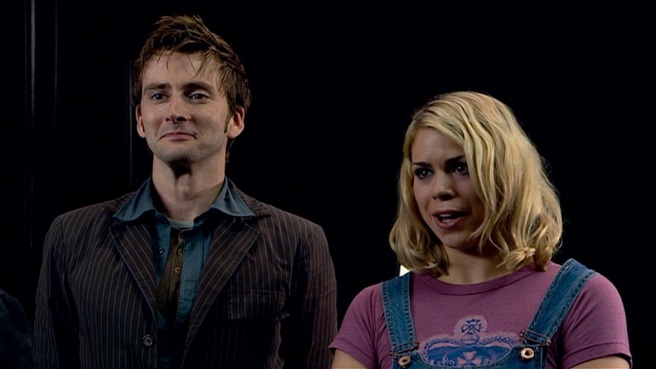I wonder what I’d be, without you.
This was perfect.
It isn’t perfect, of course, but it was: the best episode of Doctor Who is always the last episode I watched. It was the best episode of Doctor Who a decade ago, and, for a little while, it was the best episode of Doctor Who again today.
At about ten past eight on New Year’s Day 2010, David Tennant became an actor again. He went to Hollywood, and didn’t find much success there; he came back to television, and did. David Tennant elevated an above-average coastal crime drama into must see television; David Tennant was one of the best parts of a nominal comic book adaptation already much better than its peers; David Tennant is going to be in a Channel 4 crime drama we’ll all have forgotten about by the time he’s in the ITV true crime drama we’ll all have forgotten about by the end of the year. But before all that, he wasn’t an actor. It’s not that David Tennant didn’t exist – he did, in magazine articles and Doctor Who Confidential and on the news and little trivia details about stage names and Pet Shop Boys – but rather that David Tennant was a distant afterthought, far less immediately material by dint of being genuinely real.
David Tennant is not a perfect actor. He is a very good actor, but he’s not a perfect actor; there is actually perhaps an argument to be made that he’s the weakest actor of the five who have played the part he’s most famous for since 2005, although at a certain point that’s just splitting hairs. He is very good at being charming; he is extremely good at making meaningless exposition entertaining (a skill not very many actors have, but any would need to be the Doctor). But David Tennant is not especially good at playing angry. Well, no, he is – it’s just that’s he’s very good at a very particular type of anger, of overt, immediate flashes of temper. For the most part, David Tennant doesn’t do subtle gradations: it’s a raised voice, a contorted expression, wild eyes. He does it very well, and he stays in that niche. (Admittedly, having said that, The End of Time Part Two is perhaps actually one of few places where he is very good at a subtler, rising anger.) That’s obvious watching, say, The Idiot’s Lantern in 2016; less so in 2006.
Except, he wasn’t an actor in 2009, nor had he been for a few years at that point. David Tennant was the Doctor – just the Doctor. For all that Christopher Eccleston existed, or Paul McGann existed, or Peter Cushing existed, or Tom Baker in The Hand of Fear existed, David Tennant was the Doctor. It’s not a question of acting or of craft or of performance – it simply was.
He was perfect. And he was perfect again, today, for about an hour and fifteen minutes. The best episode of Doctor Who is always the last episode I watched.

Russell T Davies is not a perfect writer either.
He is a very good writer, though. In the years since he left Doctor Who, he’s written some of my favourite television, full stop. I loved Cucumber, with all its idiosyncrasies and eccentricities, probably the most personal piece of drama I’d ever seen when I watched it. A Very English Scandal was brilliant, one of my favourite television programmes of 2018. Years and Years, too, found its way onto my end-of-year best of list. It felt vital and current and so entirely in tune with the zeitgeist, a perfect expression of a very 2019 set of anxieties. Some of it was amongst Davies’ best work – the fourth episode is perhaps one of the most impactful things he’s ever written. But it also wasn’t perfect, its ending, perhaps, a little overly simplistic. It’s difficult to write a story about a world falling into fascism, and then write a solution to that, because, well, we don’t have a solution to that at the moment – and it certainly isn’t going to be “if only people knew the full extent of what was happening”, because, well, we more or less do.
But that’s an adult criticism of an adult drama. If the moment-to-moment plot mechanics of Doctor Who don’t entirely make sense, well, to be honest I’m not entirely sure how much I would’ve noticed that a decade ago… but even then, I’m not sure how much I would’ve cared. Davies’ emphasis was a writer was never about those plot-based details, but instead on stories that made emotional sense. (You can see the same style in Years of Years, although there perhaps that strength of Davies’ becomes something of a flaw.) Because Doctor Who was the first television drama I really engaged with outside of cartoons, I’m similarly minded; I’m generally a lot less inclined to worry about plot mechanics as I am character and theme.
Which is to say, I suppose: the final montage is perfect. It’s not, obviously – even outside of the unfortunate racial implications of Martha and Mickey’s marriage, that whole scene is just a bit rubbish – but it is, actually, too. I’m not sure there’s really any way that this iteration of Doctor Who could end, and it genuinely doesn’t feel, to me at least, smug or egregious or self-satisfied. It’s exactly the goodbye the series warranted. Watching it, it’s perfect.
In 2009, this was perfect. And The End of Time Part Two was perfect again, today, for about an hour and fifteen minutes. The best episode of Doctor Who is always the last episode I watched.
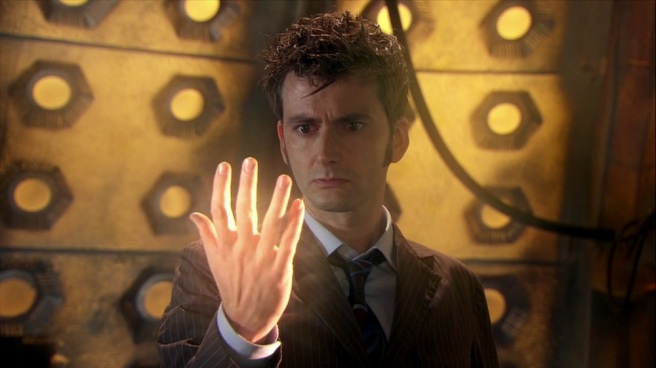
That, I suppose, is always where this was headed. If Ten Years of the Tenth Doctor was about the gap between Alex, the ten-ish-year-old watching Doctor Who, and Alex a decade later, now demonstrably a weighty intellectual and accomplished television critic (hahaha), then that’s the point in the end – there isn’t a gap at all. Sure, we all change, all through our lives, and that’s okay, so long as we remember the people we used to be.
But more to the point, the conclusion isn’t “this was perfect a decade ago”, although it was. The point is that it can still be perfect today. Not above critique, no, because if nothing else, that takes the fun out of it. The two approaches can and do exist alongside one another: I love it, and that’s why it’s worth criticising it, worth engaging with it. Doctor Who is perfect because of its flaws, despite its flaws, inseparably from its flaws. Sometimes it’s genuinely awful, and worthy of real, targeted critique – again, I’m reminded of The Idiot’s Lantern – but it is, I think, quite easy to reconcile that with a love of it, and an enjoyment of it. And, in fact, a very current enjoyment of it: even if it isn’t always very good, the best episode of Doctor Who is still the last episode I watched.
It feels, admittedly, like an almost entirely unnecessary point to make. It should be, really – the idea that you can love something wholeheartedly, yet still criticise it in turn, feels immediately quite intuitive. But it’s worth restating anyway, I suppose, particularly considering what the more mainstream view of these things is, or is becoming: that you’re not a real fan if you ever criticise something. But, well, that’s just silly. And that’s what this has always been about. Doctor Who is perfect because I loved it when I was ten, it’s perfect because I love it now, and it’s perfect because it’s imperfect, because I can review it and criticise it and find it wanting, and love it all the same.
Thus it ends, as it must. Doctor, I let you go. Sontarans perverting the course of human history. We’re all stories in the end, so make it a good one. You were fantastic, and so was I.
I don’t want you to go. But, well, you never really did.
10/10
Related:
